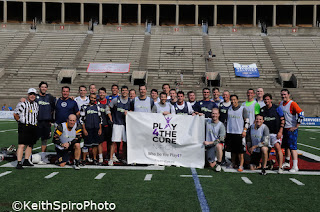Precision Medicine: Where Are We In Lung Cancer?
Lung cancer is the most common cause of cancer mortality globally, responsible for nearly 1 in 5 cancer-related deaths, or an estimated 1.6 million people. In the U.S., lung cancer is by far the leading cause of cancer-related death among both men and women; more deaths are caused by lung cancer every year than by breast, prostate, and colon cancer combined. But after years of modest growth in new treatment options, there is much cause for hope. In 2015, the FDA approved six new drugs for the treatment of lung cancer—a one-year record – including two new immunotherapy drugs, nivolumab (Opdivo®) and pembrolizumab (Keytruda®). These approvals were landmark events for the treatment of lung cancer in 2015. And the scientific evidence is accumulating that genomic testing and targeted therapies for lung cancer patients, particularly those who have advanced, or metastatic non-small cell lung cancer (NSCLC) make a significant difference in outcomes. The most useful biomarkers f...








